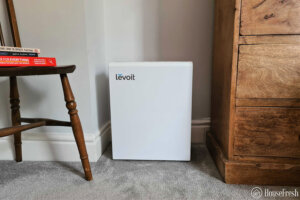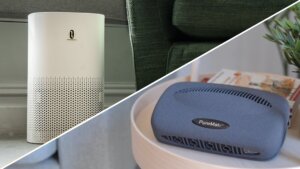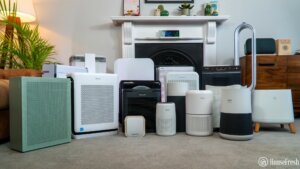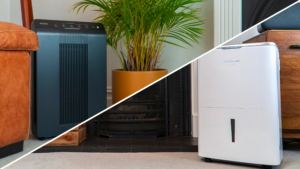HEPA filters were originally designed and used in the 1940s, but not for our homes. They were made to line masks worn by soldiers and nuclear facility workers to protect them from breathing harmful airborne contaminants like chemical smoke and radioactive particles.
Due to their effectiveness, they have evolved into the most common way of removing airborne pollutants from offices, hospitals, clean rooms, commercial spaces, and, of course, our homes.
Unfortunately, due to the way these filters work, they have a shelf life and it’s not a good idea to wash and reuse them. Here at HouseFresh, we recommend that when your HEPA has become dirty and less effective, you need to replace it with a new one.
How does the HEPA filter work?
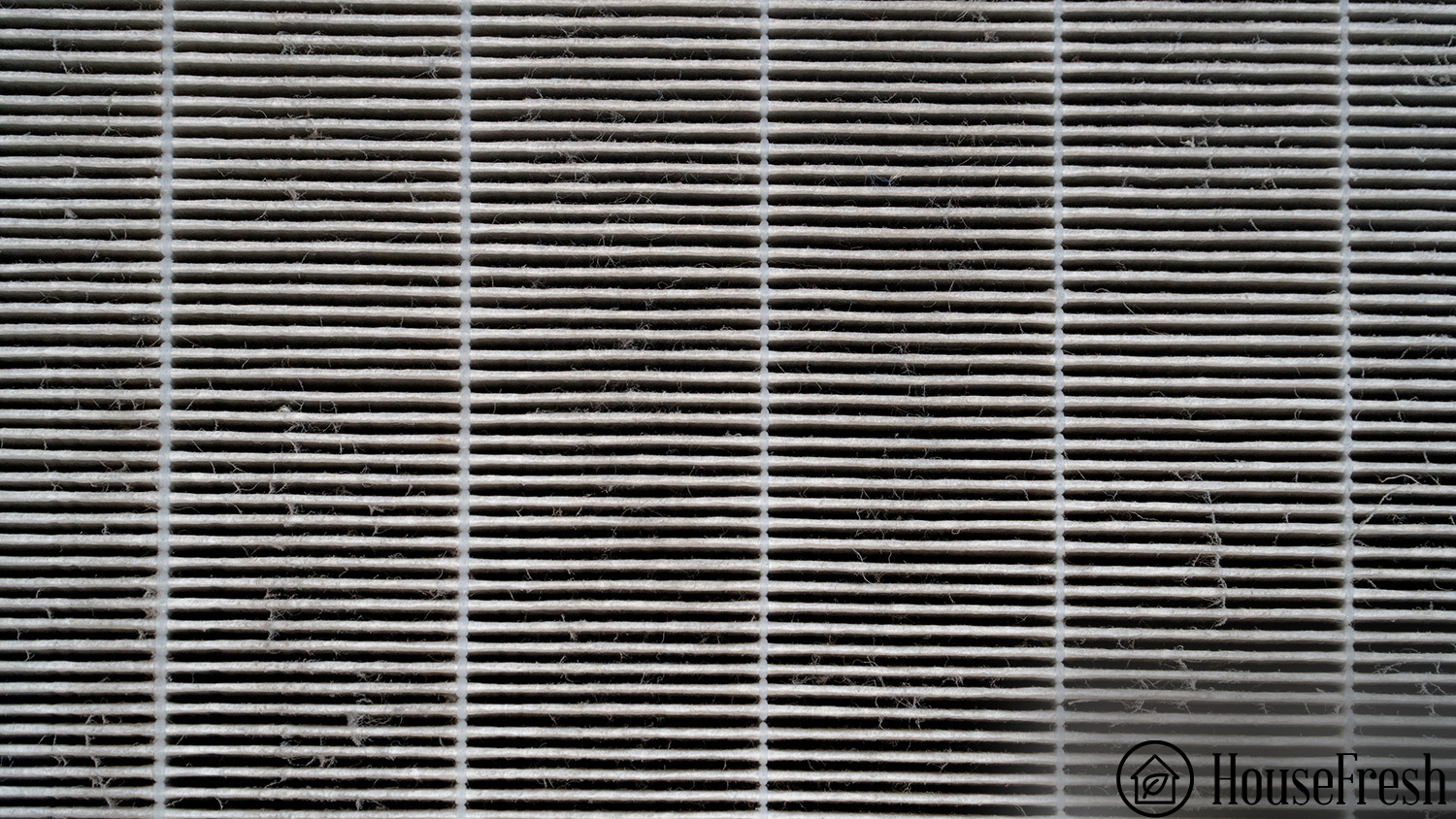
In order to explore this question in more depth we need to first understand what a HEPA filter is and how it works.
HEPA filters or High-Performance Particle Air filters are a mat of randomly arranged woven fibers. They form a kind of maze which have pathways for airflow but trap particles as they try to pass through.
To put it simply, they filter minuscule pollutants from the air. We spend about 90% of our time indoors exposed to these contaminants and the most effective way to protect yourself from them is by using an air purifier with a HEPA filter.
Common household particles that harm our health include:
- Dust
- Bacteria
- Mold
- Allergens
- Smoke
There are a few different types of HEPA filters out there. The stronger the filter, the more airborne pollutants will be removed.
Filters are like Gremlins… don’t get them wet!
Now that we know what HEPA filters are, it’s pretty clear that getting them wet by washing them will affect their performance. But don’t just take our word for it, let’s look at some science.
Smart Air is a company that not only manufactures air purifiers with HEPA filters like the Smart Health S and the Blast Mini, but they also conduct performance tests to answer these types of burning questions.
They recently looked into cleaning HEPA filters by actually cleaning them, then testing their performance. They did this by testing the CADR (Clean Air Delivery Rate) both before and after cleaning and washing 8 different HEPA filters.
They measured:
- The impact in performance for capturing particles as these are a great benchmark on how well the filter is performing.
- The amount of airflow traveling through the filter. This tells us if the filter has become less clogged or if the fibers have become damaged.
- The filters CADR before and after. This will show the overall impact washing has had on it.
Here’s what they found:
❌ Vacuuming HEPA filters doesn’t work
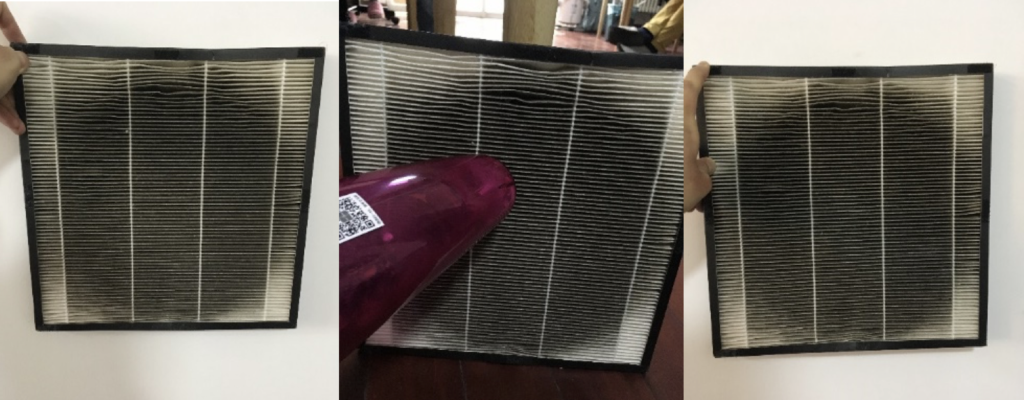
The first test was conducted by vacuuming a dirty HEPA filter. In principle, vacuuming makes sense as you’re removing particles by sucking them up. The real issue here is that most vacuum cleaners don’t have HEPA filters themselves, so in reality, you’re just releasing all those harmful contaminants back into the air.
With all that aside, let’s look at Smart Air’s results:
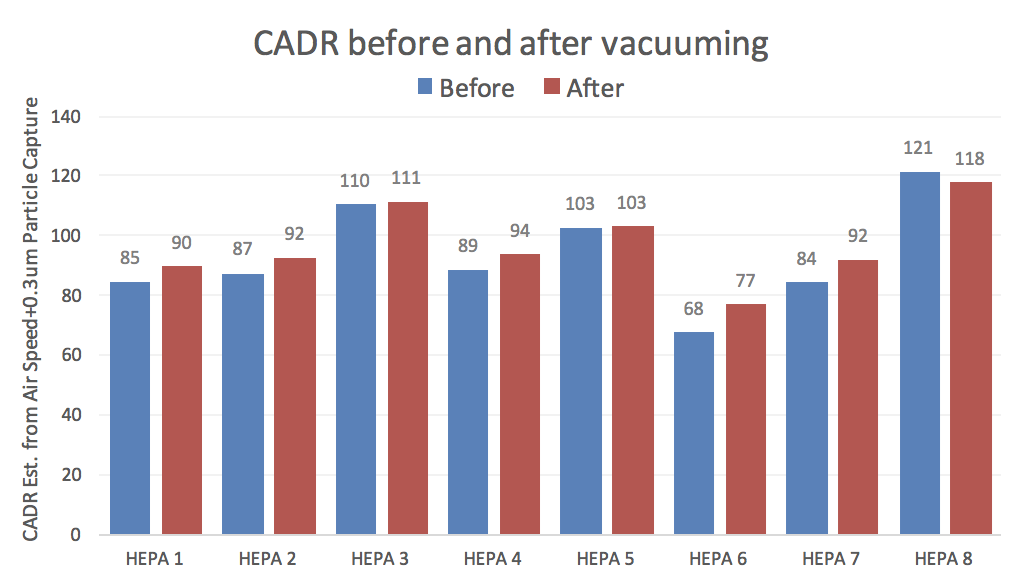
The results show that vacuuming made very little to no difference to the performance of their HEPA filters. Not enough to make the chore worthwhile, and proves that it’s definitely not a solution.
❌ Washing HEPA filters with water doesn’t work
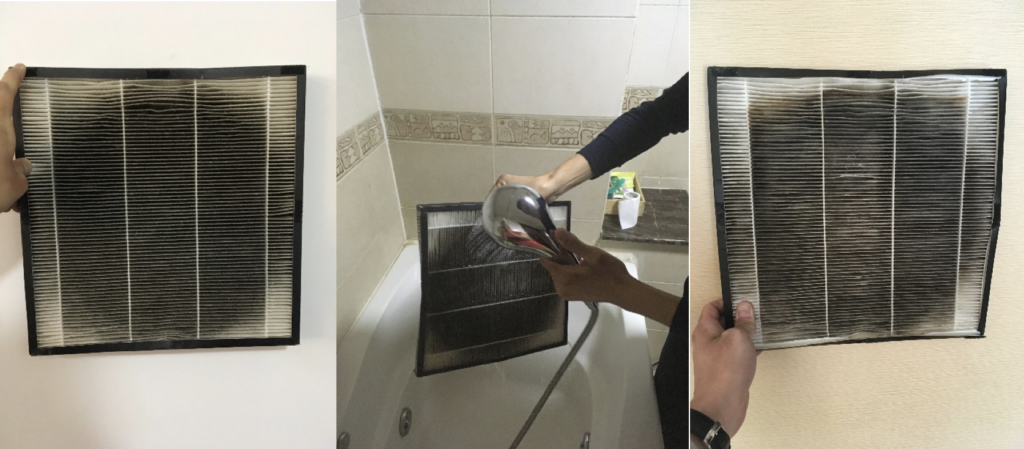
The second test they conducted was taking more dirty HEPA filters, washing them under water (no soap), and leaving them for enough time to dry. This ended up being a lengthy process as you have to make sure they are thoroughly dry before putting them back into your air purifier.
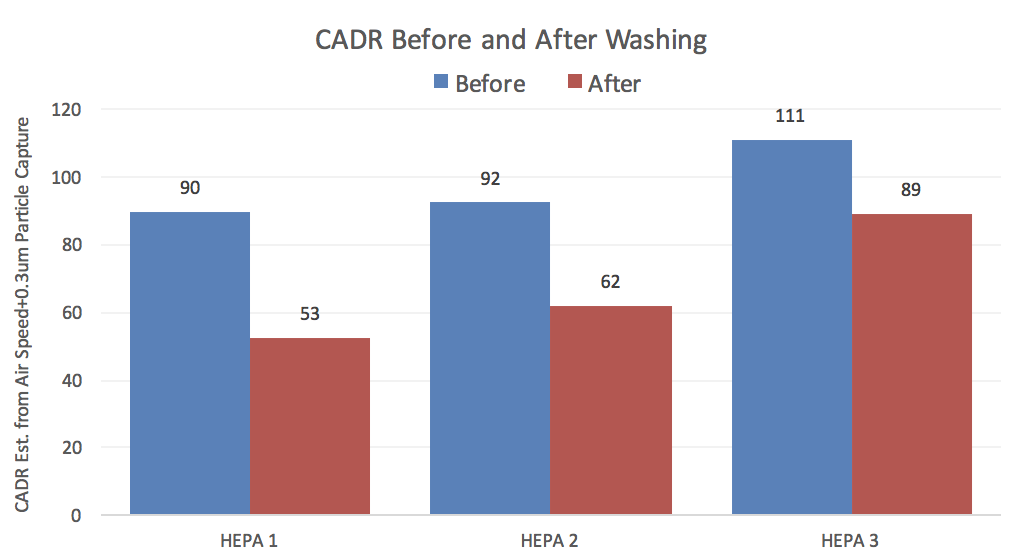
The Smart Air team announced that there wasn’t much point in testing all the filters as the evidence was already pretty conclusive. As you can see, washing the filters with water dramatically decreased their effectiveness by an average of 32%.
Why we don’t recommend washing HEPA filters
Washing anything will, over time, wear down what it’s made from. HEPA filters are no different, only they will suffer damage quicker.
As the above studies show, most HEPA filters aren’t designed to be washed in the first place. More often than not, you’ll not only damage the filter, but you could also damage your air purifier especially if you bring water into the equation.
Four more reasons why you shouldn’t wash your HEPA filter
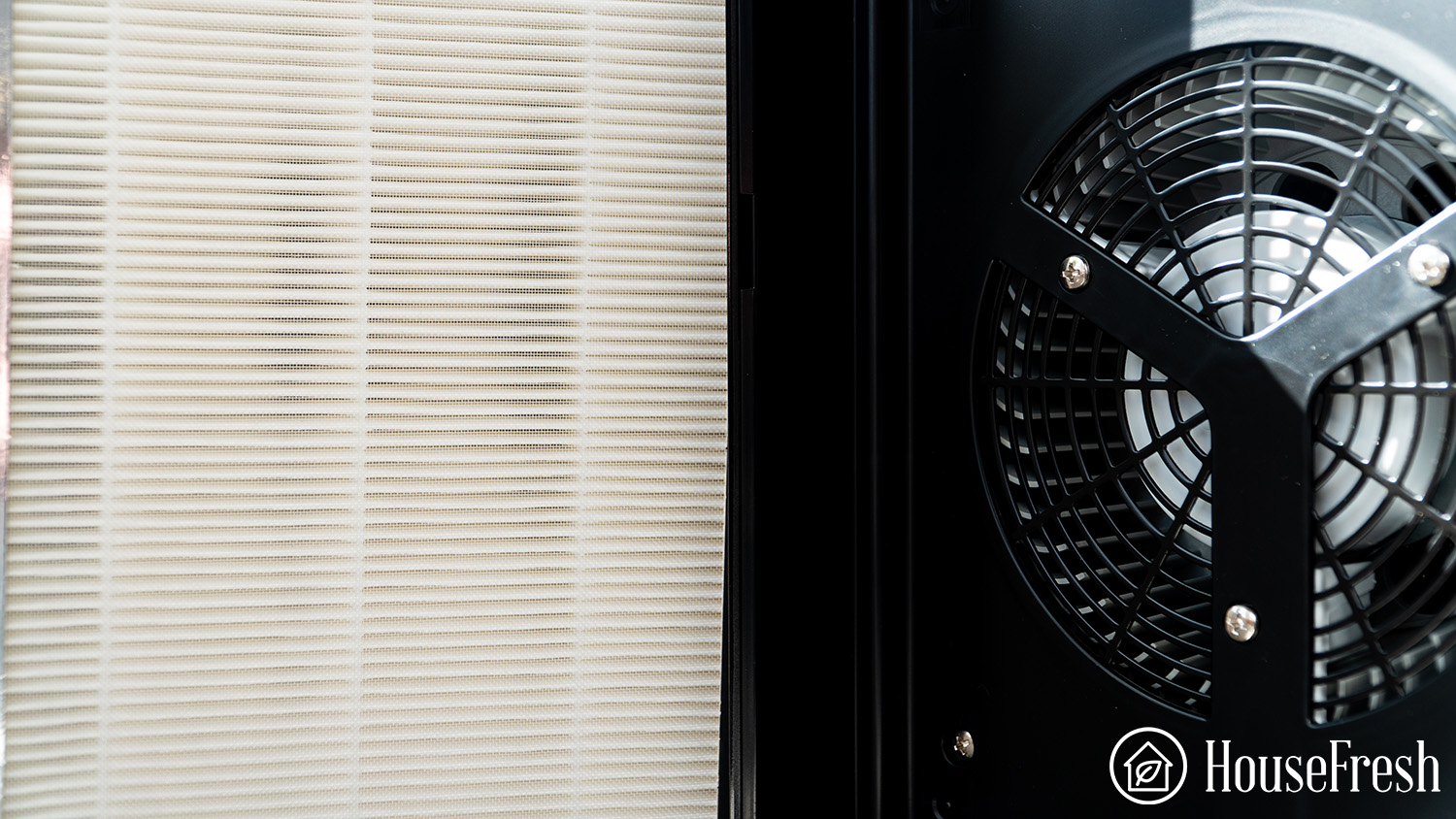
If all that science hasn’t convinced you that cleaning your HEPA filter is harmful to the filter and pretty pointless, here are some more reasons to persuade you.
- Cleaning is a dirty job, especially when it comes to filters because now you can’t actually see the dirt. Most of the dirt (particles) are too small to see with the human eye, so without a microscope, how can you tell when it’s actually clean?
- When you wash, vacuum, or even rub your HEPA filter with a cloth, you’re most likely sending those harmful particles back into the air. All that hard work your filter has done is wasted. Think of what months of trapped contaminants now free will do to your environment (cough cough).
- We all know that vacuuming regularly keeps your home fresh and clean, unfortunately, that doesn’t work with cleaning HEPA filters for a simple reason. If your vacuum cleaner doesn’t have a HEPA filter itself, there’s nowhere for those tiny pollutants to be trapped. Therefore, all you’ll be doing is releasing pollutants back into your room.
- If you wash anything, you’re gonna need to dry it. HEPA filters take a loooong time to dry out (at least 24hrs) and in that time all sorts of things can happen. They could allow mold to form, making the filter useless, they can warp out of shape making the filter useless, and the fibers can stretch and/or break…making the filter useless.
The signs that it’s time to replace your HEPA filter
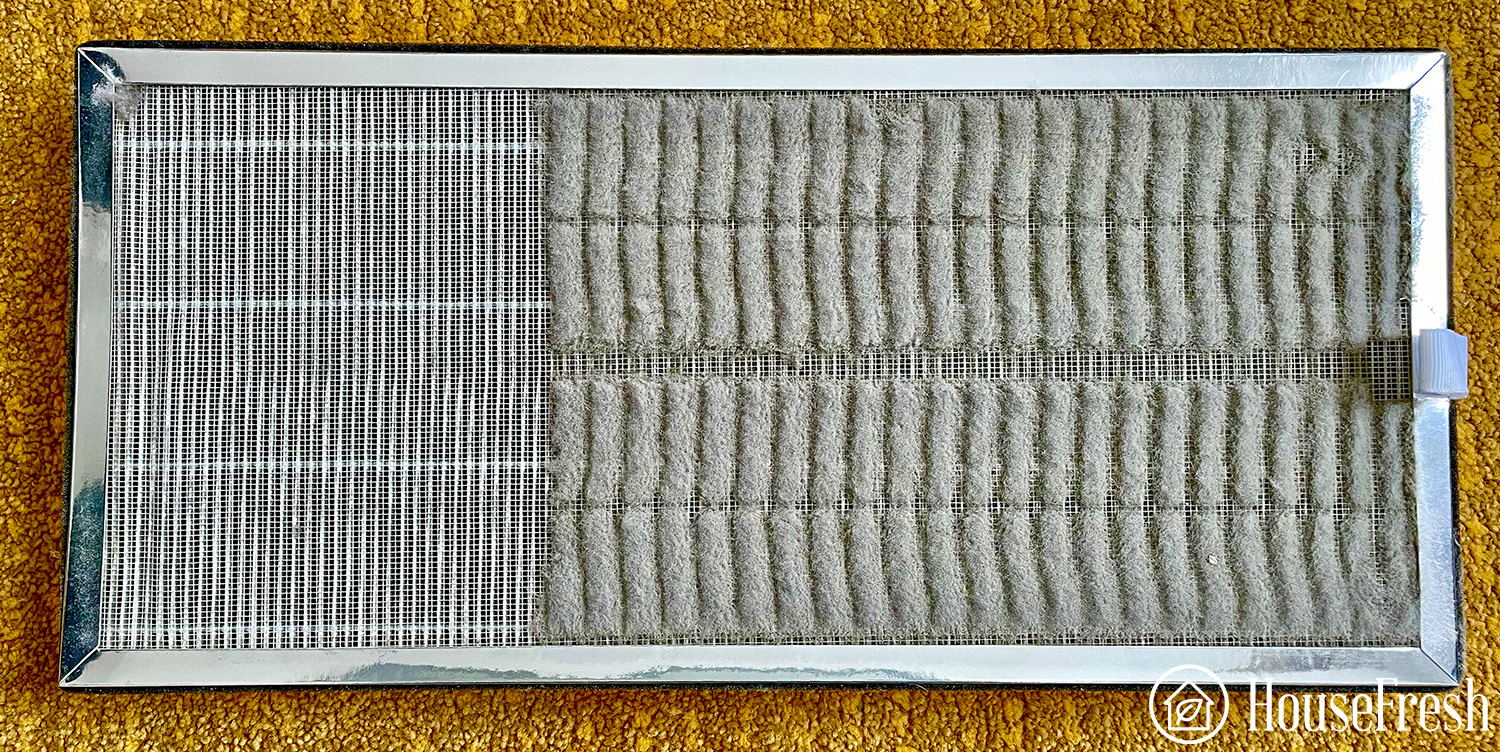
Most air purifier manufacturers will tell you how long their filters last on the box, in the manual, or on their website. If you can’t find that information anywhere, there are a few warning signs to look out for.
🚩 It’s visibly dirty. Sounds simple enough but it has to be said. Take the filter out of your air purifier and see if it looks dirty. As we’ve mentioned, a lot of the dirt is invisible to the human eye so you’ll be looking for a build-up of dust, hair, and maybe even mold. If it’s ready to be replaced, you may also see black patches. These are a build-up of particles generated from combustion like car exhaust fumes.
🚩 It’s not working as intended. Another tell-tale sign that your HEPA needs replacing is when it doesn’t seem to be working. You may notice your home is dustier than usual, your allergies are back, cooking smells aren’t disappearing as fast, etc. Sometimes, if you’ve used an air purifier for a while, you can just tell that the air is different.
🚩 Your air purifier warns you that it is time. Most air purifiers these days have a filter replacement indicator on the control panel. This will either light up or make a noise when your HEPA filter is ready to be replaced.
Final thoughts
HEPA filters are not designed to be washed and reused. Doing so will cause damage to the fibers which makes the filter ineffective, and it will become void of its job. Once a filter has reached the maximum capacity of harmful particles, it will need to be replaced with a fresh, new one.
You can prolong the life of a HEPA filter by having a pre-filter. This will trap all the larger particles so that the HEPA doesn’t get clogged with them. You can usually wash a pre-filter with a damp cloth or use a vacuum cleaner.



